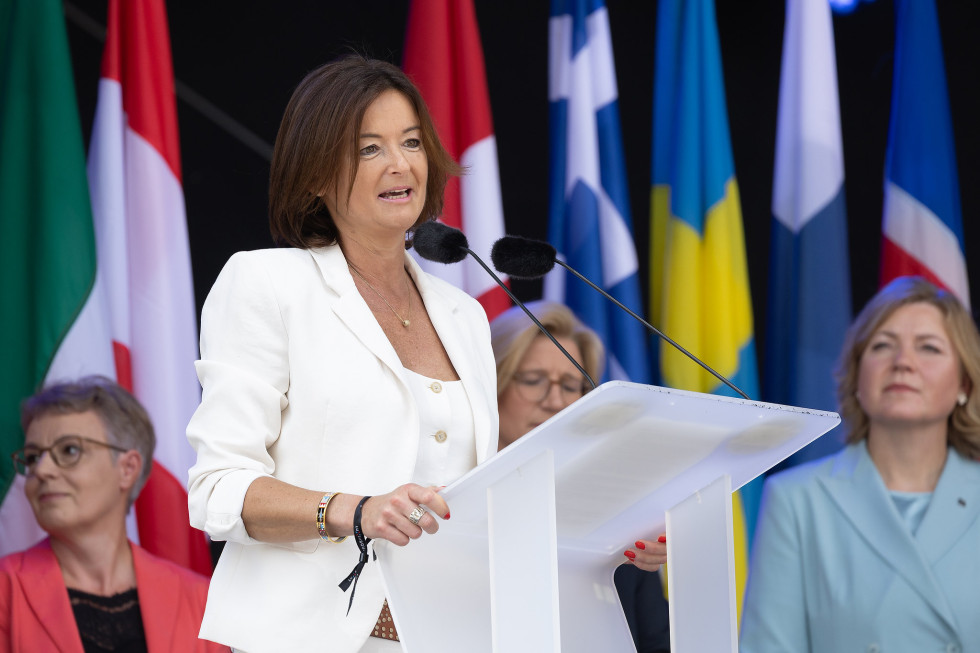Minister Fajon on the 40th anniversary of the Schengen Agreement: Despite the challenges, we remain a strong advocate of open borders within the EU

Minister Tanja Fajon addressing the audience during the ceremony in Schengen | Author SIP / Claude Piscitelli
“Schengen is undoubtedly one of the EU’s greatest achievements, primarily owing to the principles of the freedom of movement and the free movement of goods. Open borders within the EU have come to symbolise European unity and cooperation. Despite the challenges currently facing the Schengen area, it is crucial that we continue to support open borders within the EU. Slovenia will continue on this path,” emphasises Minister Fajon.
Slovenia joined the Schengen area on 21 December 2007, alongside eight other countries. In doing so, it adopted the Schengen rule of law, including measures relating to external borders, compensatory measures in the event of the absence of internal border controls and a robust supervisory framework to ensure a high level of security. Our citizens most keenly felt the importance of this achievement when border controls were abolished at the borders with Austria, Italy and Hungary.
“The full functioning of the Schengen area, with its absence of internal border controls, is a valuable asset for citizens and the economic entities in all Schengen countries. It is particularly beneficial for people living near the border, daily migrants and members of national minorities,” said Minister Fajon.
On the 40th anniversary of the Schengen Agreement, Slovenia underlines the need for thorough reflection on the future of the Schengen area. This involves rebuilding trust between the Member States and emphasising the importance of the area’s unimpeded functioning. It also involves consistently pointing out the importance of the temporary nature of internal border controls and the need to abolish them as soon as the situation permits.

